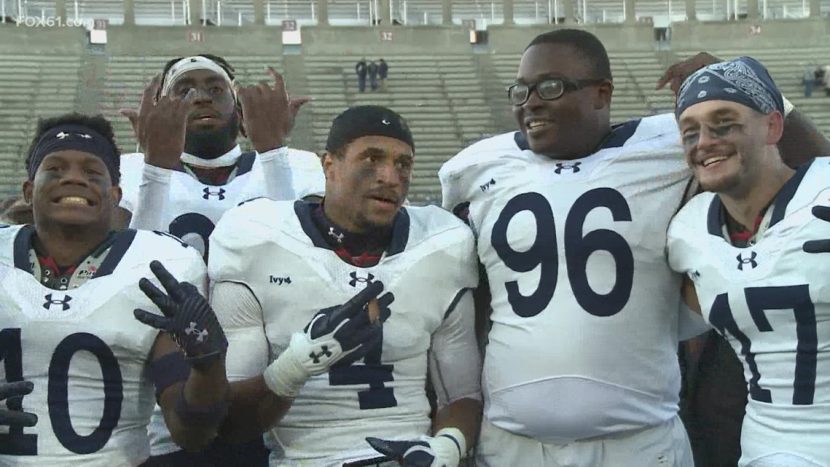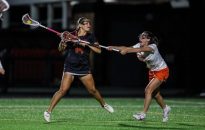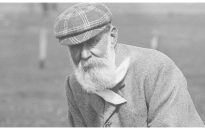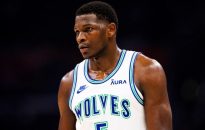But if this situation repeats next year, Harvard football may have a chance at redemption. On December 18, the Ivy League announced it would start participating in the Division I Football Championship Subdivision (FCS) playoff. Since its 1954 inception, the league has not permitted its football teams to participate in postseason games. But now, one […]
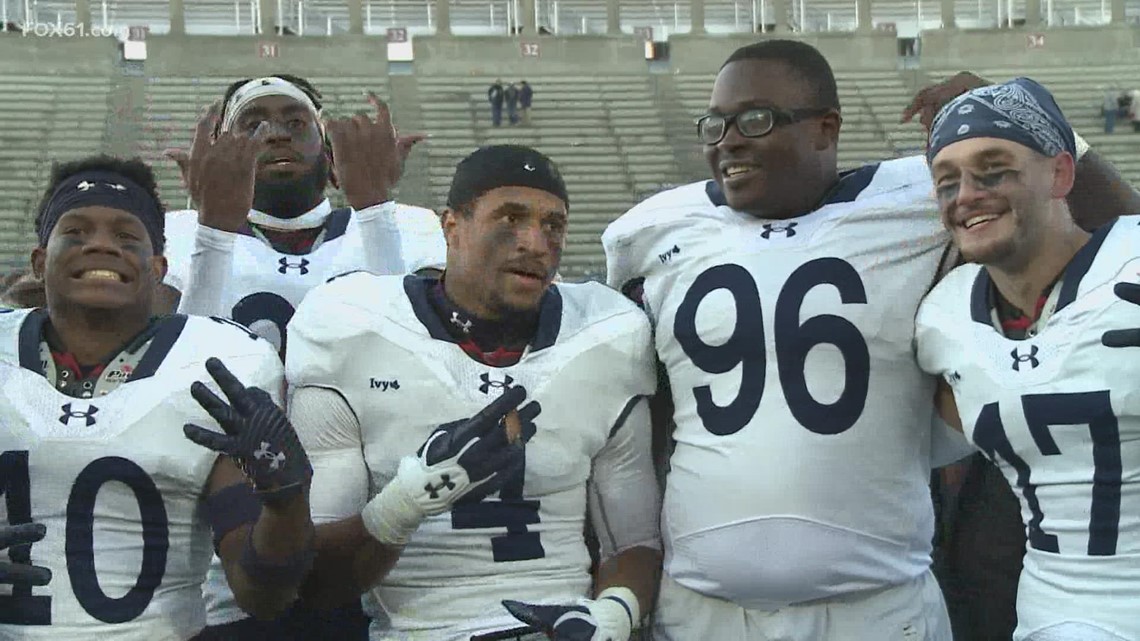
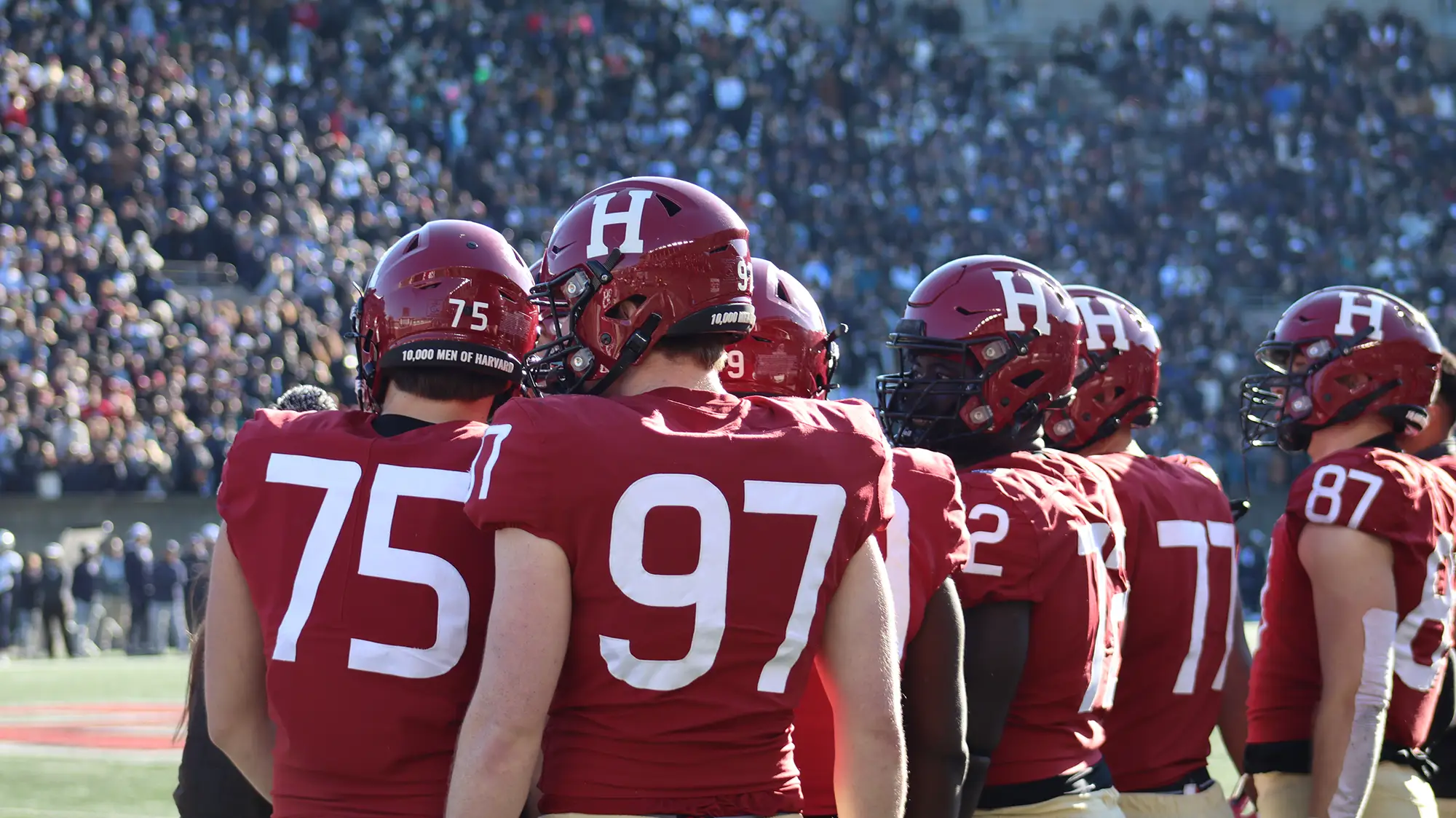
But if this situation repeats next year, Harvard football may have a chance at redemption. On December 18, the Ivy League announced it would start participating in the Division I Football Championship Subdivision (FCS) playoff. Since its 1954 inception, the league has not permitted its football teams to participate in postseason games. But now, one Ivy League team will compete in the second tier of Division I playoffs, a 24-team, five-game, single-elimination bracket lasting from late November to early January. (In the common event of a shared title, the Ivy League will have to devise a tiebreaker to determine which team gets the playoff spot.)As the clock ticked to zero this past November 23, hundreds of Yale fans jumped over the wall separating Harvard Stadium’s bleachers from its field. Despite securing a share of the Ivy League championship, Crimson footballers were left with this bitter final image for their otherwise successful season.Next year, the traditional Harvard-Yale match may not spell the end of the Crimson’s football season. After securing the Ivy League crown, Harvard could play top FCS teams like Montana State, University of California Davis, and Mercer University, seeking to secure a national title, individual sponsorship money, and future recruits.Competing in the playoffs may enable Crimson footballers to raise their national profile, and, thus, make more money. Though Harvard does not pay players directly, student-athletes are allowed to seek out sponsorship deals independently. Leverett University Professor Jerry Green, a former member of the faculty oversight committee, said such a proposal was not considered during his roughly two-decade tenure. And Harvard Athletics seems to recognize the playoffs’ monetization potential. Two days after the playoff announcement, Harvard Athletics sent out an email launching “The One Crimson NIL Exchange,” a revamped platform “designed to connect businesses with our talented student-athletes for Name, Image, and Likeness (NIL) opportunities.”Abstaining from the playoffs was one of the regulations that set the league apart from other college football conferences. Ivy League football teams play fewer games than other schools (10 instead of the typical 12), cannot extend athletic scholarships, and, as of yet, have not directly paid student-athletes.Once other schools started to pay players, it became more difficult for certain Harvard teams, including football, to recruit and retain student-athletes. Tim Murphy, who last January retired after 30 years as Stephenson Family head coach for Harvard football, said that in the past few years, several recruits have accepted NIL money from Northwestern and Stanford rather than come to Harvard without an athletic scholarship. At top-tier Division I schools like Northwestern and Stanford, student-athletes could play in the College Football Playoff or a bowl game.But in the past four years, the landscape of college football has radically shifted. As of summer 2021, students have been permitted to earn money for use of their name, image, and likeness (NIL) and to transfer without penalty. The top echelon of sports, like men’s basketball and football, now more closely resembles professional athletics than pre-NIL college athletics (Read more in the November–December 2024 feature, “The End of the Ivy League”).The Ivy League’s playoff reversal comes after a year-long process initiated by the its student-athlete advisory committee. The 17-student committee, representing all eight Ivy schools, presented the playoff proposal to the Ivy League council of presidents, which accepted it. Harvard football coaches, players, and alumni expressed enthusiasm about the change. “Thank you to the Presidents for giving the student-athletes an opportunity to compete for a National Championship,” said Murphy’s successor, Andrew Aurich. “Ivy League football is the most competitive it’s ever been and I’m excited for us to make some noise in the playoffs for years to come.”If an Ivy-winning Harvard football team succeeded in the playoff, its student-athletes would face a complicated exams schedule. Such academic concerns were discussed at a meeting of the faculty standing committee on athletic sports before the proposal’s acceptance. Football is the only Harvard sport barred from competing in the playoffs. “If we are unable to manage the strain on academics created by playoffs, then we shouldn’t allow any of our teams to participate in playoffs,” said Alison Frank Johnson, professor of history and of Germanic languages and literatures, who is a member of the committee. “But we actually have been able to manage playoffs for other teams pretty well.” Athletic staff, she explained, can proctor exams, and students can finish coursework before traveling. Expressing her personal opinion, Johnson added that “equity across teams demands that we allow our football players the same competitive opportunity to participate in playoffs as other teams.”








